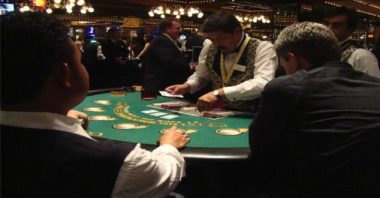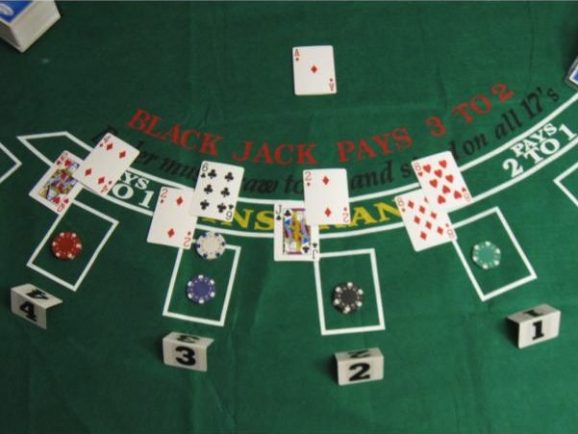As one of the most popular casino games in the world, most people are familiar with the concept of blackjack. Even kids will probably have played some variant of 21 or Pontoon for fun. One of the reasons for the game’s popularity is the perception that it is a game of equals. Unlike spinning slots or pinning your hopes on a roulette wheel, blackjack is player versus dealer. That sense of equal opportunity is one of the reasons that experienced casino players visit blackjack tables from London to Lisbon to Las Vegas.
But we know, of course, that casinos will have a house edge in all their games. That built-in advantage of probability is how they make their profits in the long term. But where does the advantage to the house lie in blackjack? After all, you and the dealer both have the same goal – reaching a score of 21 or as close as possible to it. A winning bet is paid as even money, so there is no advantage there, nor do casinos charge commission. So how is the house edge determined? The answer is not as simple as you might think.
Most experts put the house edge at somewhere between 0.5%-1.5%, but those numbers are contested. The edge is said to come from the fact that the dealer’s ‘hole’ card (the face-down card) remains unseen by the player until they have completed their game. Only once the player has made their move will the dealer reveal their card and complete the game. Another advantage is that the player plays first, and the dealer will automatically win if the player goes bust.
The player can be creative
But the above only tells half the story. The player also has a large arsenal of weaponry to play the game, including splitting, doubling down, and so on. The dealer must play by strict rules, including drawing to 17, whereas the player can be ‘creative’, sticking or twisting on whatever score they want. These rules hamper the dealer, benefiting the player. Moreover, you’ll also receive 3:2 on a winning blackjack bet (21 with 2 cards), which also raises the advantage for the player. While blackjack variants differ in rules, the general structure is universal in both blackjack at online casinos and land-based casinos.
Presumably, then, if the dealer is forced to abide by rules, the player’s freedom will start to turn the game to their advantage. It does, of course. And that’s the most important aspect of blackjack’s house edge. As we mentioned earlier, there is a lot of disagreement about the exact house edge of blackjack, and the debate is usually based on how much the player’s actions redress the balance. And if you accept that a player can shorten the odds due to skill, then you must accept that the house edge is different for each person.
Ben Affleck, the movie actor and companion of Jenifer Lopez, is said to be a skilled blackjack player, talented enough to have been banned from a handful of casinos (we’d take the banning reports with a pinch of salt). Affleck, as with most skilled players would have used a card-counting strategy. You’ve probably seen this in movies like Rain Man or The Hangover, both of which, for different reasons, made it seem like card counting was only within reach of the supremely gifted. It isn’t. It’s not that difficult, perhaps as easy as learning a few lists of phone numbers. The other myth is that card counting is illegal – it isn’t.

Card counting can even the odds
Card counting basically consists of keeping track of the cards that have come out of the deck. If an abnormal number of high cards has been dealt, you’ll know that you will statistically be more likely to receive a low card, and vice versa. Skilled players come up with all sorts of pattern strategies to narrow down the odds of predicting what the next cards will be, allowing them to be aggressive by using strategies like doubling down. They can’t be exact – that’s impossible – but they can get a good enough understanding of the probability so as to give them the advantage. That fact, therefore, makes some people doubt whether there is a house edge at all in blackjack.
Well, it’s true that the most skilled players likely have the edge over the house. But there is weaponry on the side of the casino as well. You might hear a skilled player enquire as to how many decks are being used in the game. As you might imagine, the more decks that are used, the more difficult it is to keep track of the cards and predict what’s coming. Some casinos might use six or even eight decks. However, you can still find single-deck blackjack at a lot of casinos.
All of the above probably paints an unclear picture of blackjack’s house edge. It is not like, say, roulette, where we can understand the house edge via a simple mathematical proof. But the fact that the house edge is debated and contested is part of its allure. That makes it the one casino game where a player can feel it is they, in fact, who has the advantage.
Article written by Jack McDaniels.











